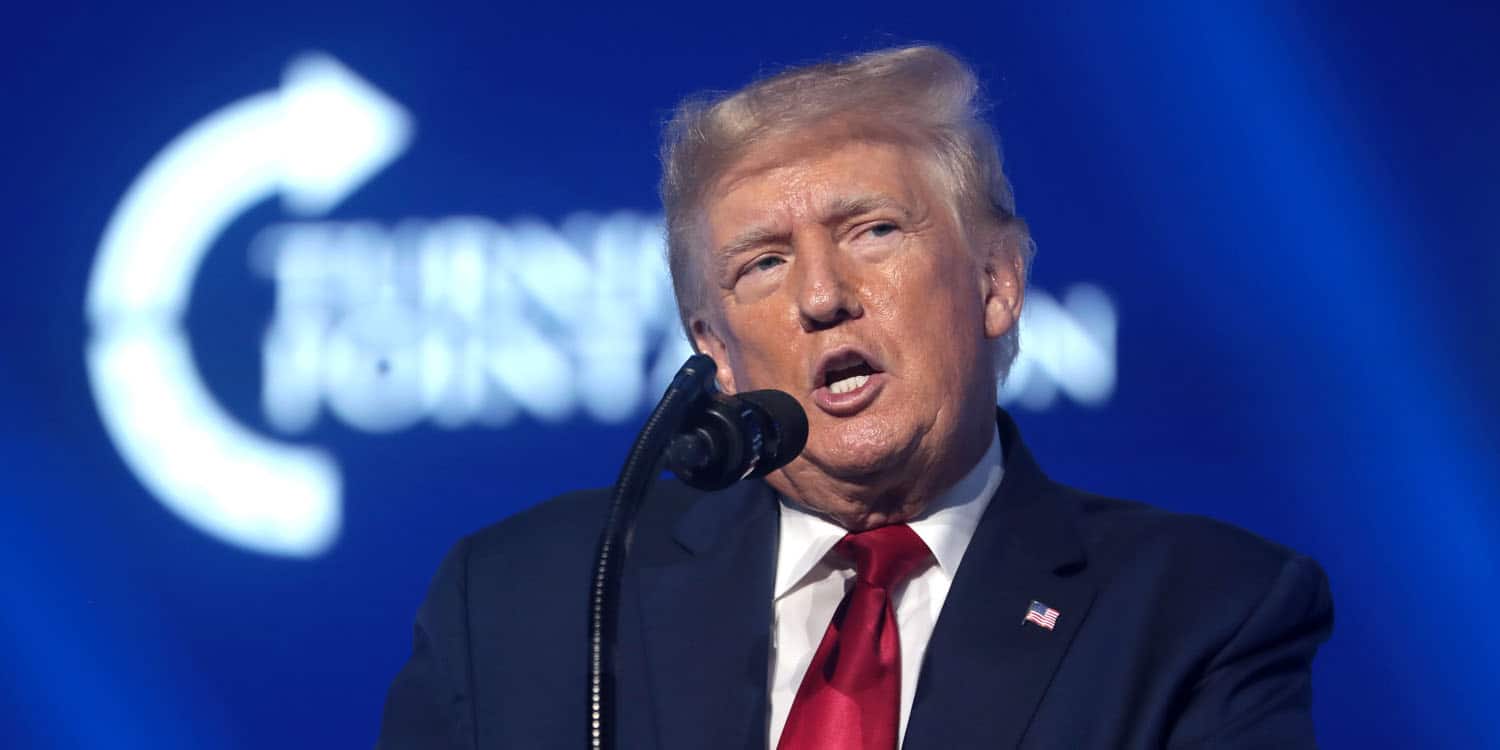A study published in the Journal of Political Marketing sheds light on the relationship between online social networks and voting behavior. The analysis of Republican Twitter users during the 2022 U.S. Senate elections found that individuals in tightly connected social groups were more inclined to support GOP candidates, except in cases involving an endorsement from former President Donald Trump.
The researchers behind the study aimed to explore how online social networks influence real-world political outcomes, particularly within the context of growing political polarization and the spread of misinformation. With increasing evidence suggesting that social media plays a critical role in shaping political opinions, the researchers wanted to understand whether being embedded in a close-knit online community of like-minded individuals would influence voting behavior in U.S. Senate races.
“As a general matter, we wanted to explore the relationship between people’s information environments and their voting behavior,” explained study author Costas Panagopoulos, a Distinguished Professor of Political Science at Northeastern University and coauthor of Battleground: Electoral College Strategies, Execution and Impact in the Modern Era.
“We were especially interested in how likely exposure on social media to misinformation about the outcome of the 2020 presidential election in the U.S. affected subsequent voting in the midterm elections that followed in November 2022. In particular, we investigated how social media connectedness, or embeddedness, was linked to voting decisions in U.S. Senate elections in the midterm cycle.”
The study focused on data from Twitter, particularly looking at Republican users during the 2022 U.S. Senate elections. The researchers gathered data from a large panel of Twitter users and analyzed the structure of their social networks. They calculated a measure called the “clustering coefficient” for each user, which indicates how interconnected a user’s social network is. In other words, this coefficient measures how many of a person’s contacts are also connected to each other. A higher clustering coefficient means the user is part of a more tightly-knit social group.
To conduct the analysis, the researchers aggregated these Twitter users by county and calculated an average clustering coefficient for each county. This served as their key independent variable. They then compared these network characteristics with voting outcomes in the 2022 Senate elections, examining whether counties with higher clustering among Republican Twitter users were more likely to vote for Republican Senate candidates.
In addition to looking at social networks, the study also accounted for several other factors. For example, they included data on the results of the 2020 presidential election in each county, whether the Republican candidate in the Senate race was an incumbent, and whether the candidate had been endorsed by Donald Trump. They used these variables to try to isolate the impact of social network clustering on election outcomes.
The study’s findings showed that higher levels of social network embeddedness were associated with greater support for Republican Senate candidates. In counties where Republican Twitter users were more closely connected within their networks, GOP candidates tended to perform better.
This result aligns with the theory of complex contagion, which suggests that people are more likely to adopt behaviors or beliefs—such as political preferences—when they are reinforced by multiple close contacts. In the case of the 2022 Senate elections, Republican voters embedded in tightly connected networks appeared more likely to vote for the GOP candidate.
“Overall, we found that the more embedded Republican Twitter users were in social networks, the more they supported GOP U.S. Senate candidates in the 2022 general elections on average,” Panagopoulos told PsyPost.
However, the study also found that the effect of social network embeddedness changed depending on whether the Republican candidate had been endorsed by Donald Trump. In races where Trump endorsed the GOP candidate, higher levels of social network embeddedness were linked to lower support for that candidate. This suggests that Trump’s endorsement may have had a polarizing effect, particularly in networks where users were closely connected.
The researchers speculate that Trump’s association with election fraud narratives and conspiracy theories might have contributed to this dynamic. In these highly connected networks, the spread of such narratives could have led to decreased confidence in the endorsed candidate, even among Republican voters.
In other words, while embeddedness in Republican-leaning networks generally boosted support for GOP candidates, Trump’s endorsement had a counteracting effect, possibly due to the influence of conspiracy theories that undermined trust in the electoral process.
“We were somewhat surprised to find heterogeneity in the impact of social media embeddedness,” Panagopoulos said. “The overall effect, for example, was the opposite for Trump-endorsed candidates, perhaps because stronger embeddedness in these networks affected the composition of the voting electorates.”
But as with all research, there are some caveats to consider. “First and foremost, this is an observational study, so claims about causal impact are not possible,” Panagopoulos noted. “Second, we focus mainly on Republicans in this study, so our findings cannot extend more generally to Democrats or independents. We also make some assumptions about likely exposure to political (mis)information on social media, but we do not actually measure it. We rely mainly on extant work on social and complex contagion to advance these claims.”
“We view this study as a first cut in trying to link individuals’ embeddedness in social media networks to their social and political behaviors. Our initial results suggest such linkages exist, but we have a long way to go to disentangle the nuances of these relationships. We hope to continue this work.”
The study, “Embeddedness, Social Contagion, and Vote Choice in the 2022 U.S. Senate Elections,” was authored by Costas Panagopoulos and Nunzio Lore.




